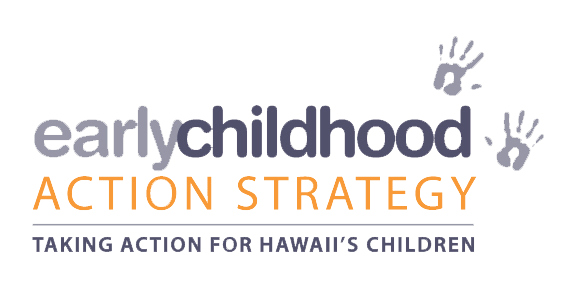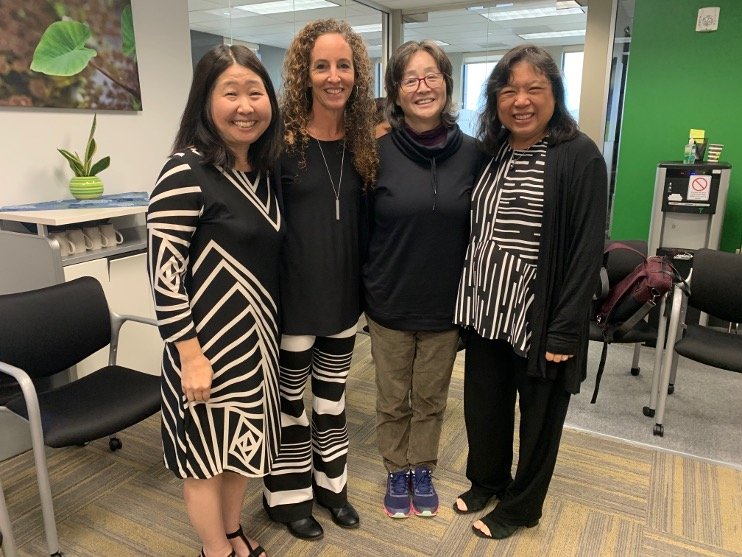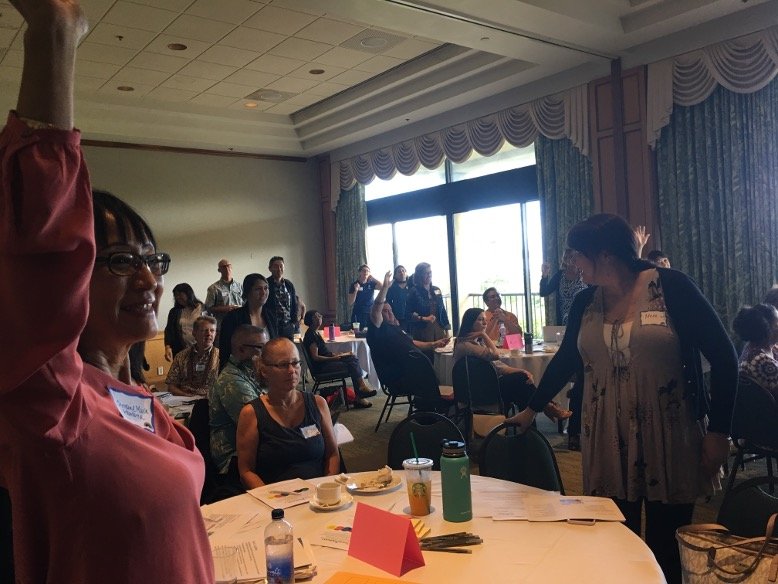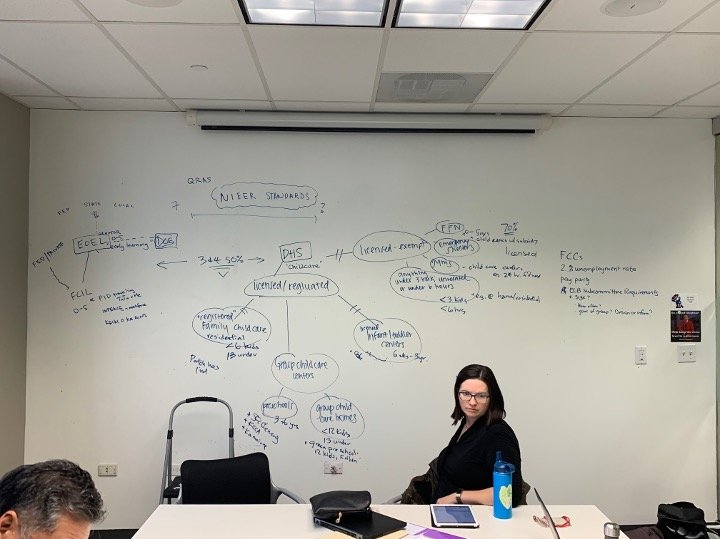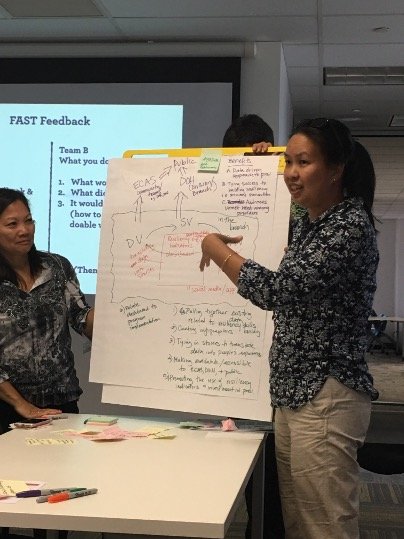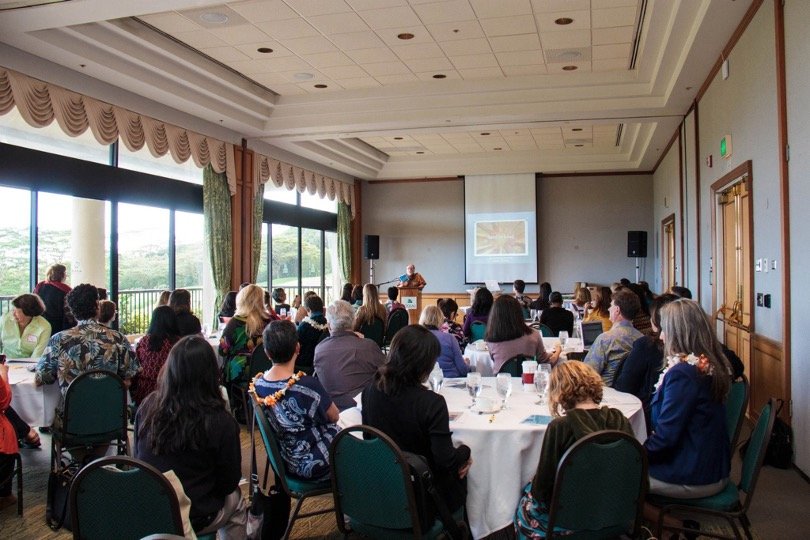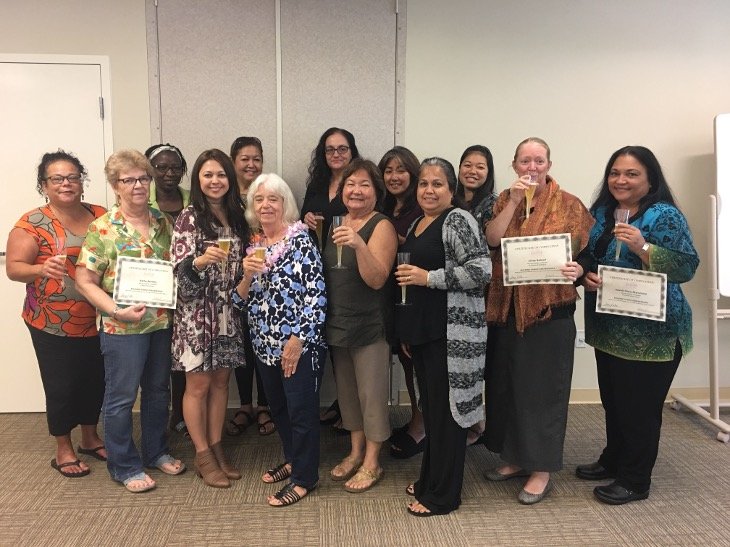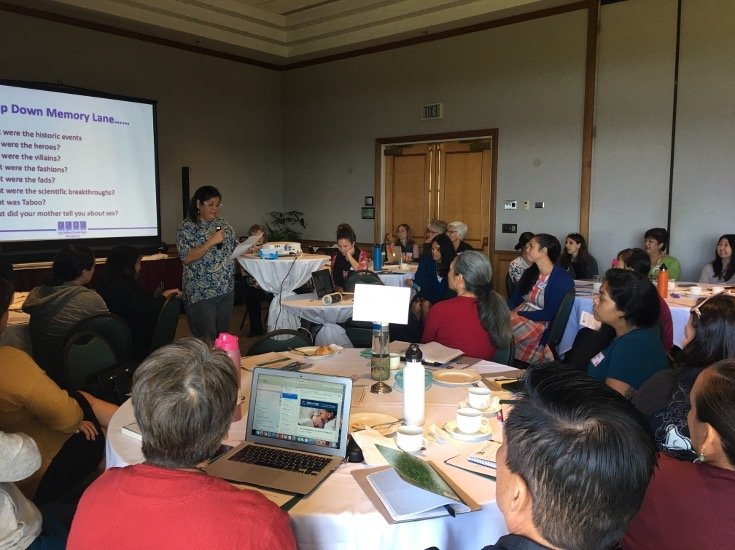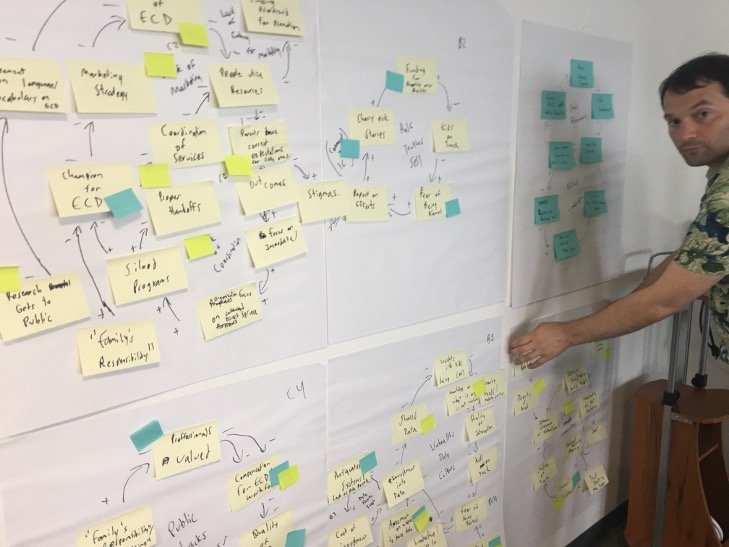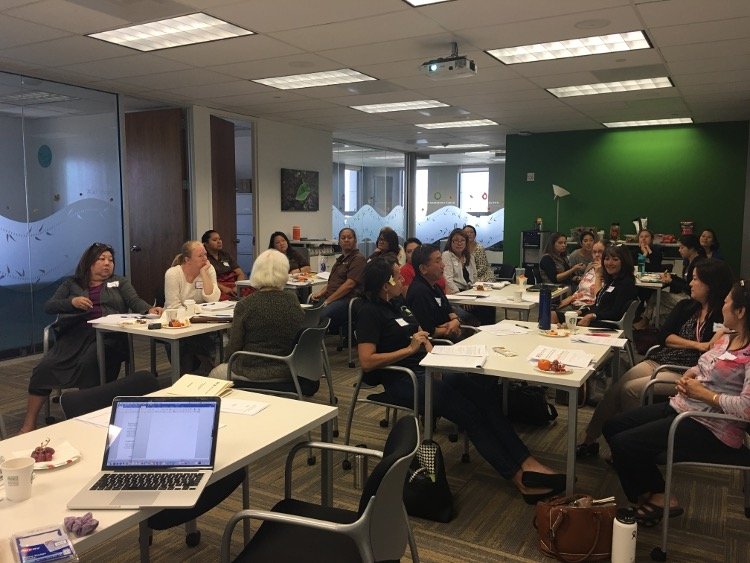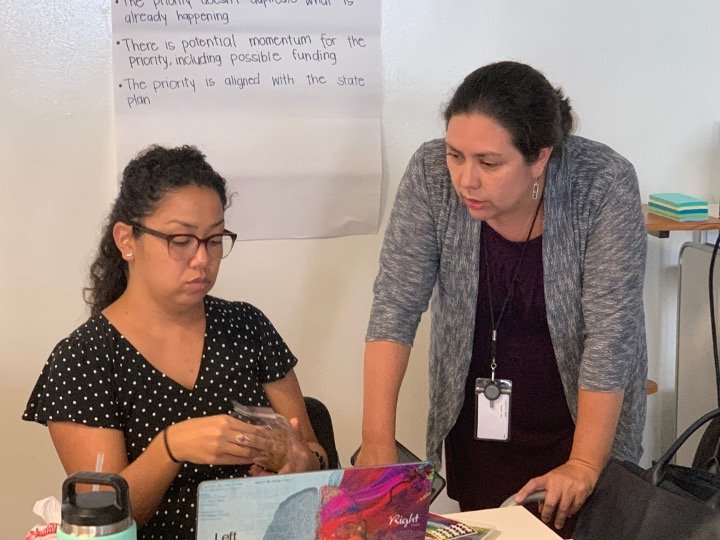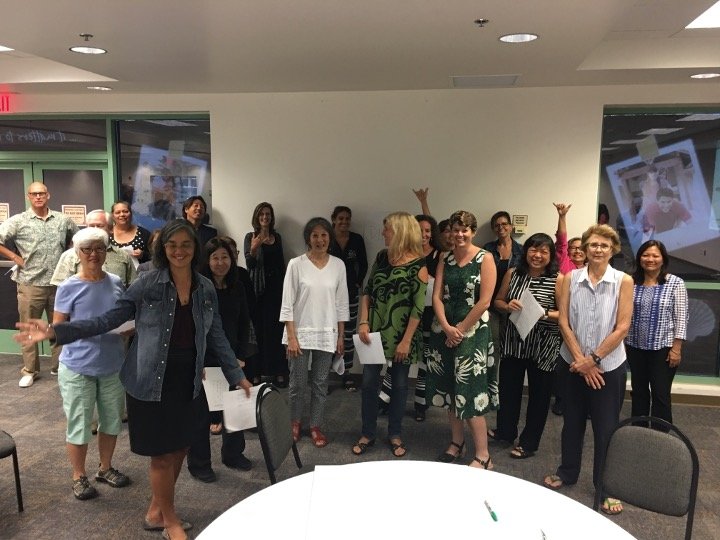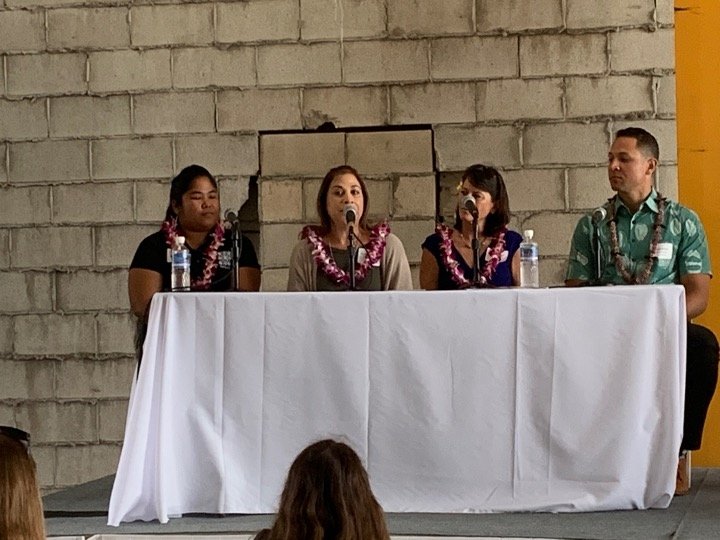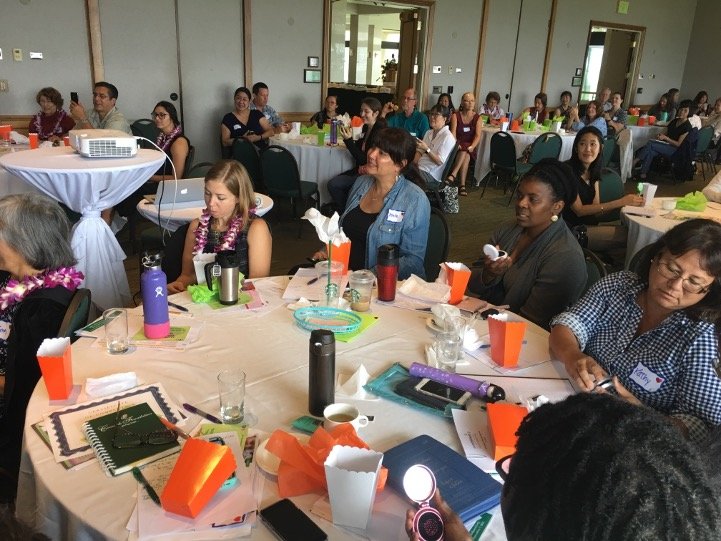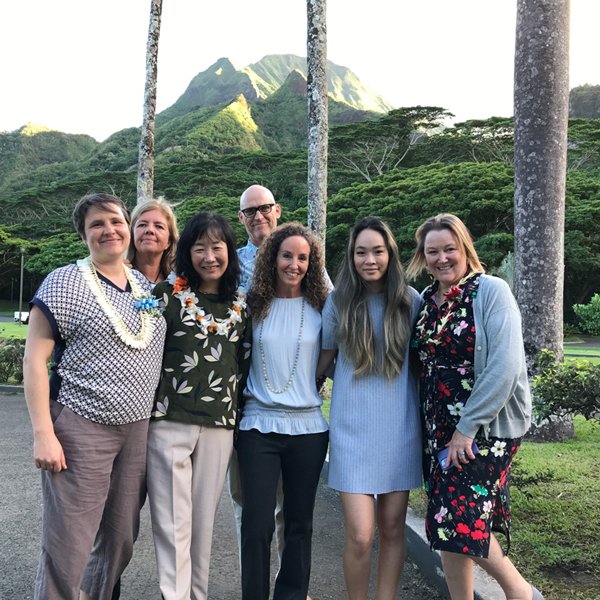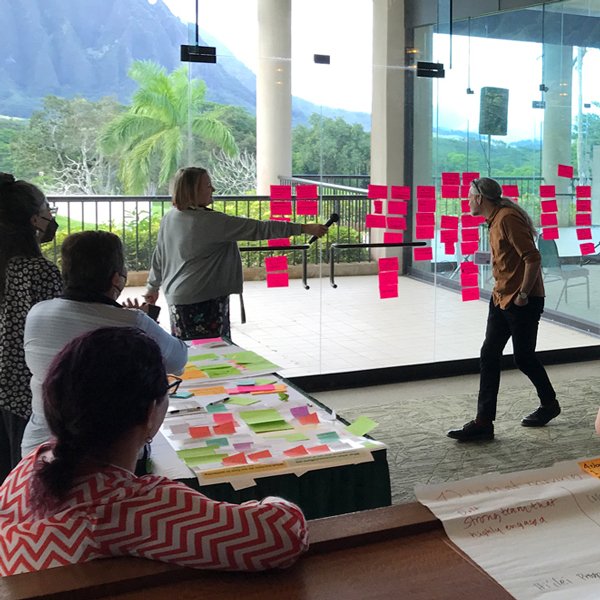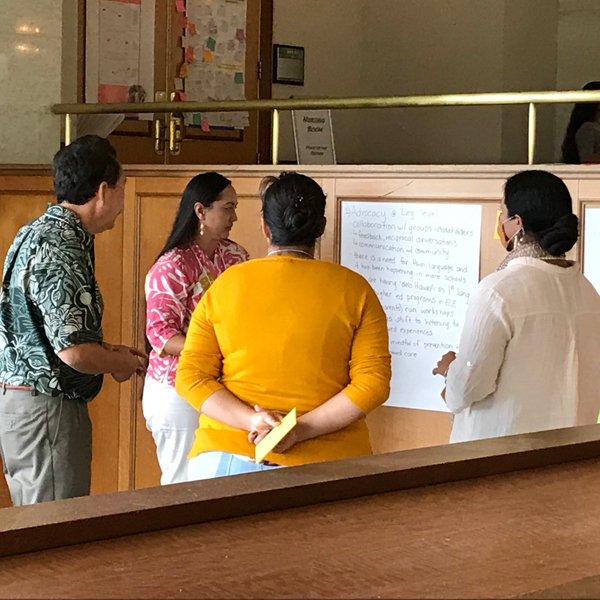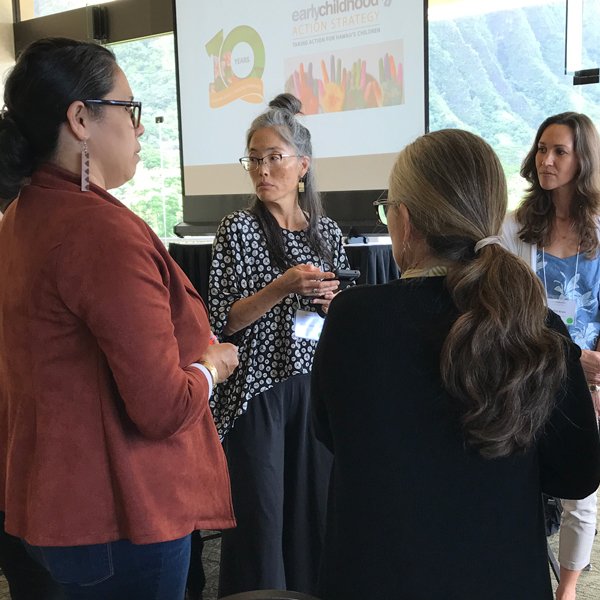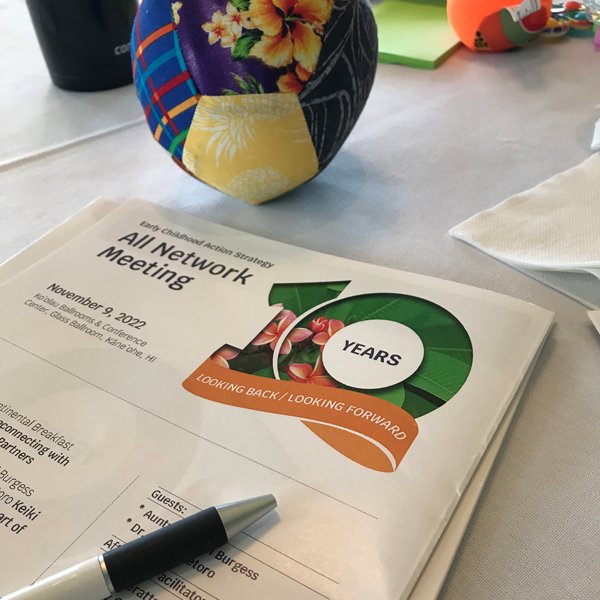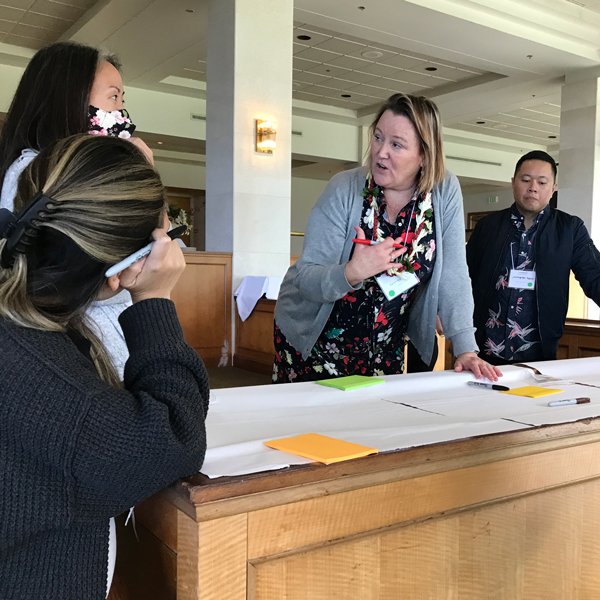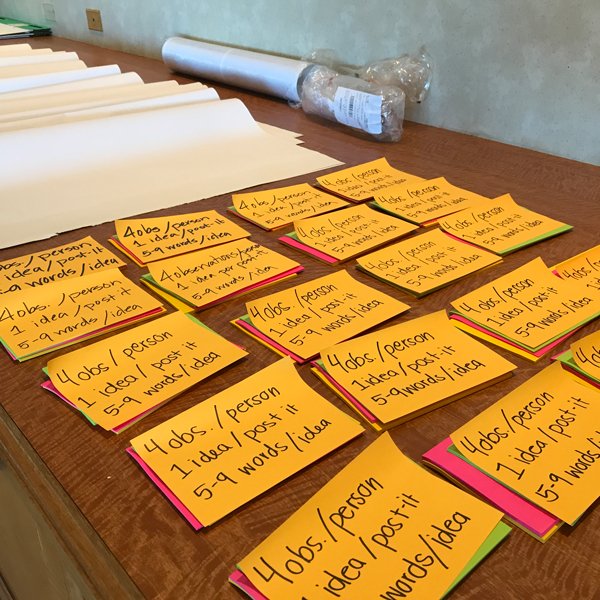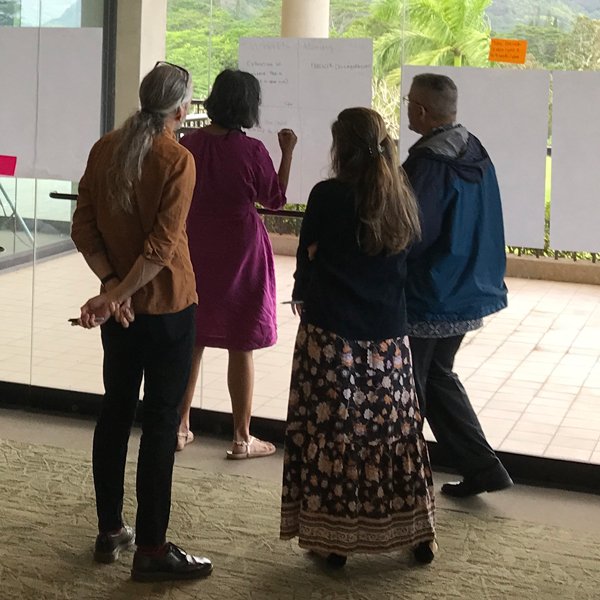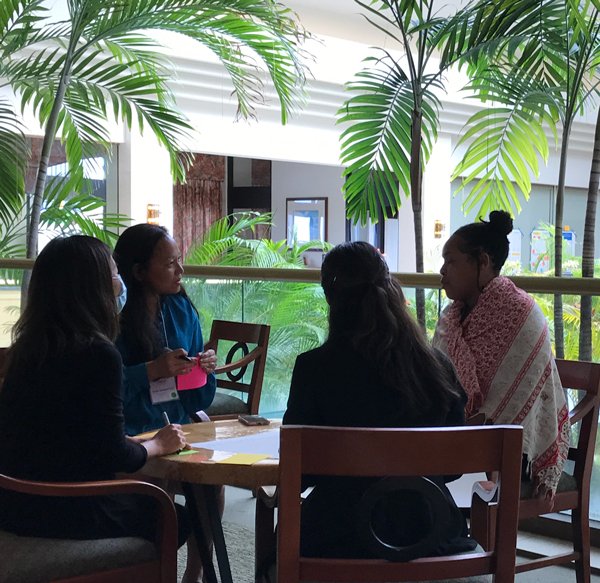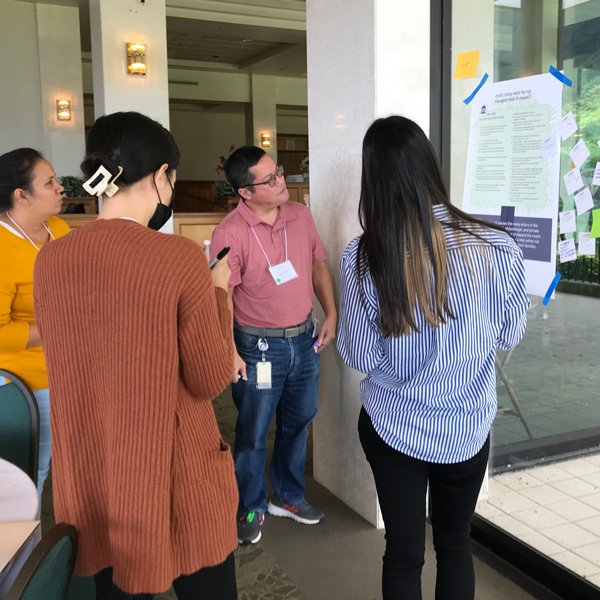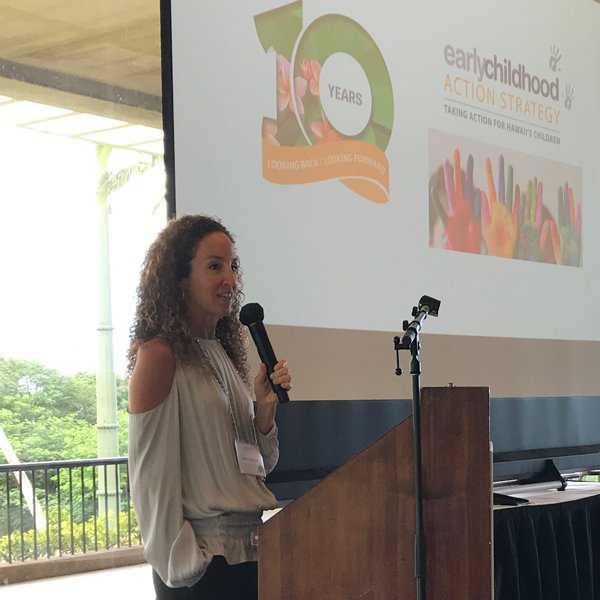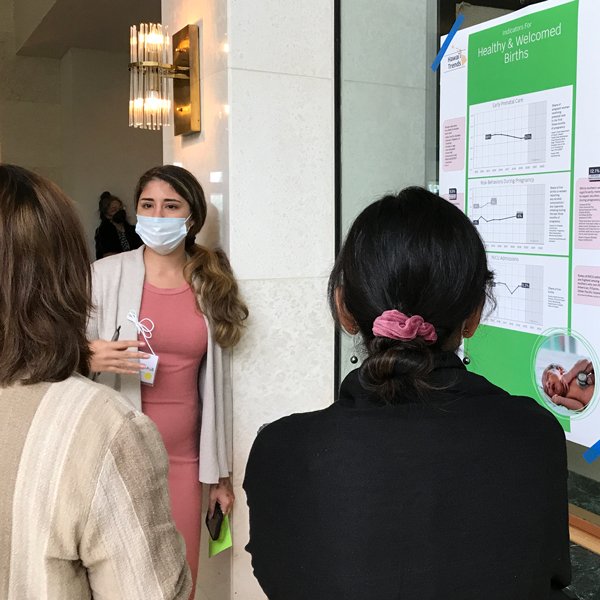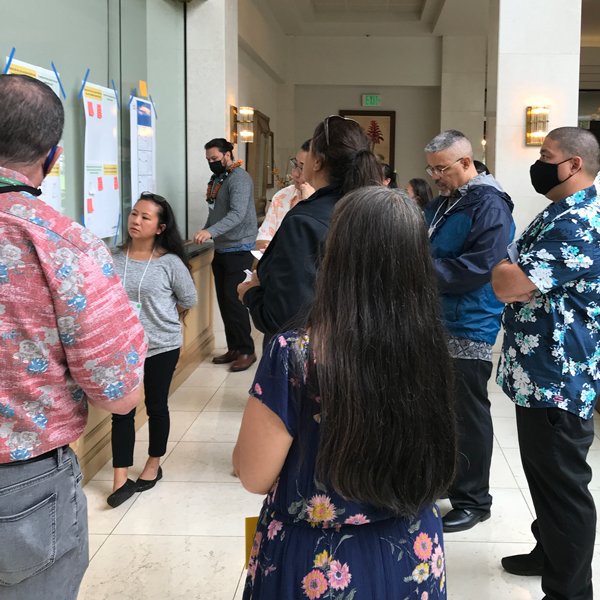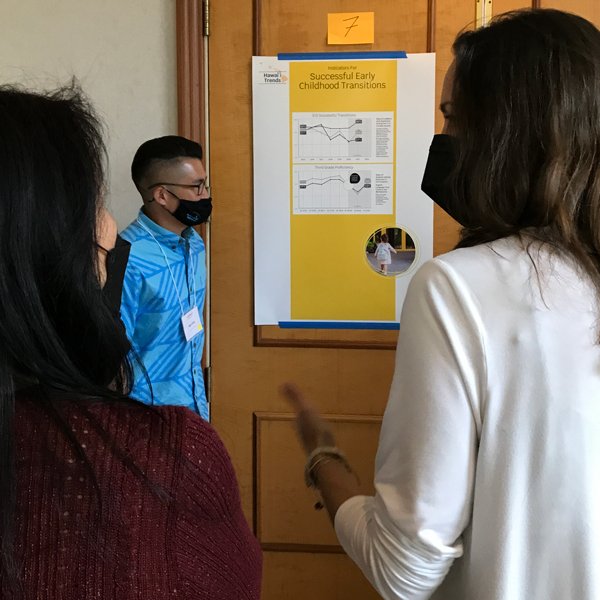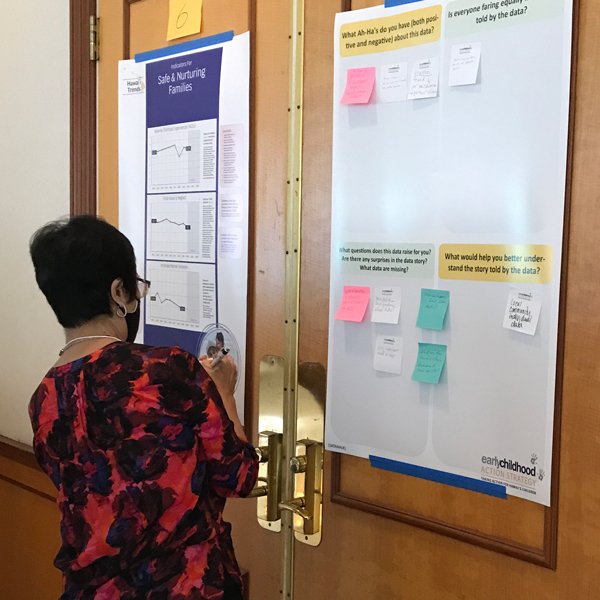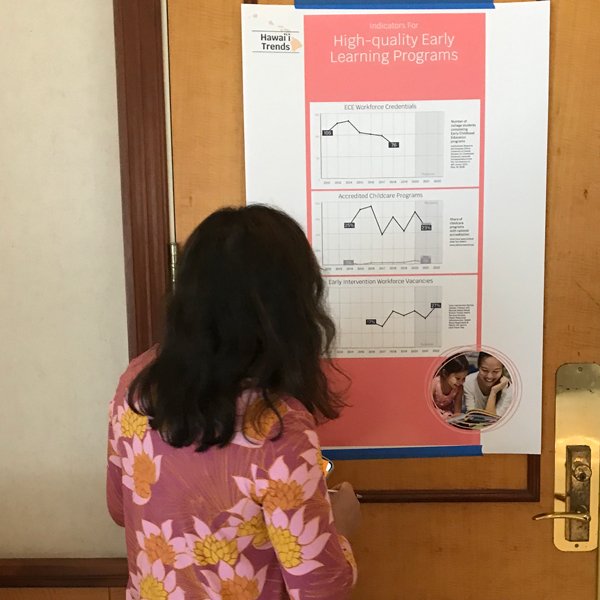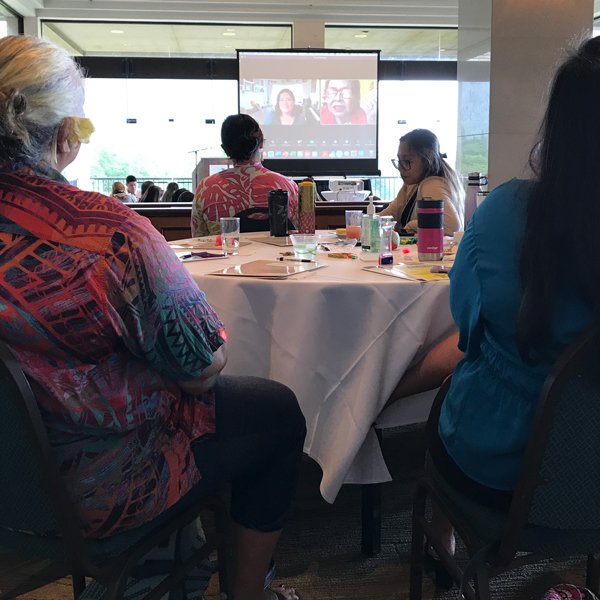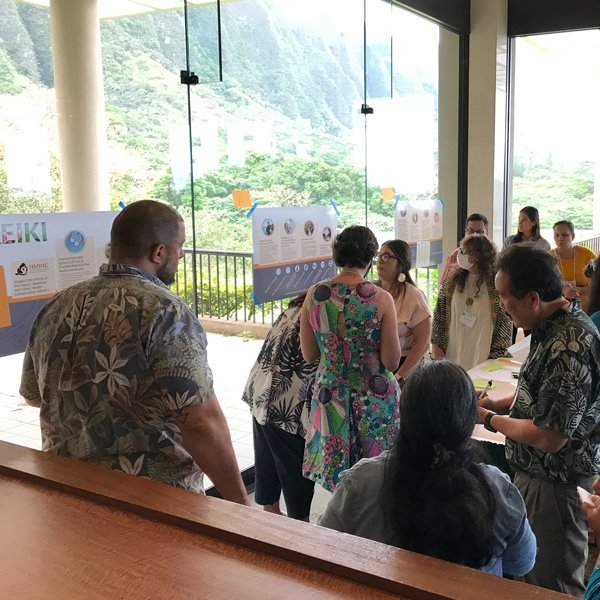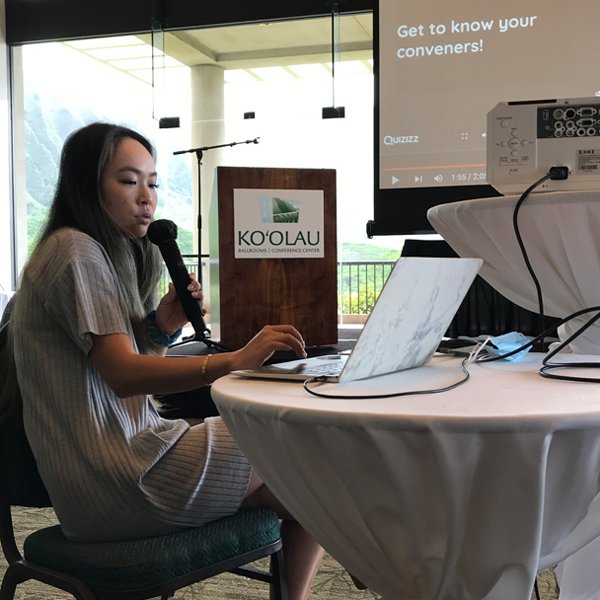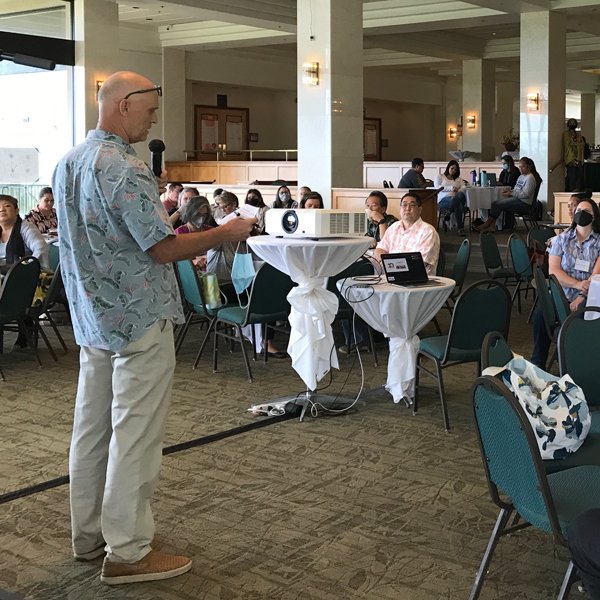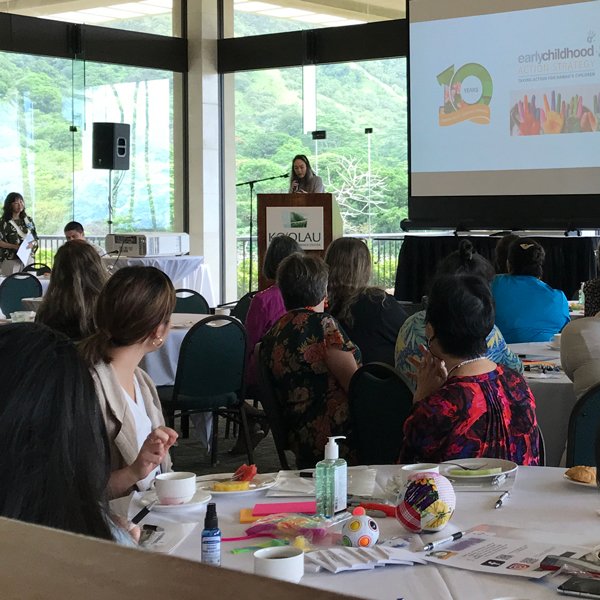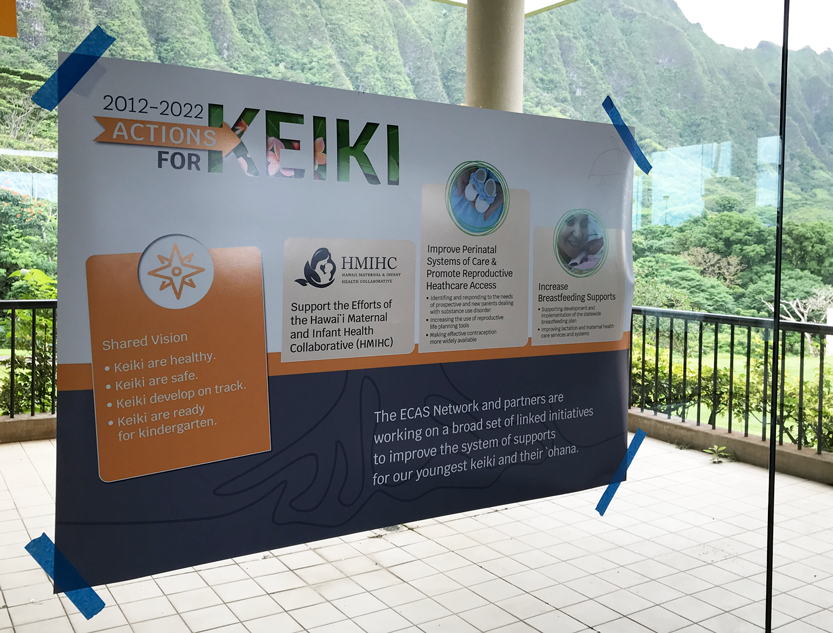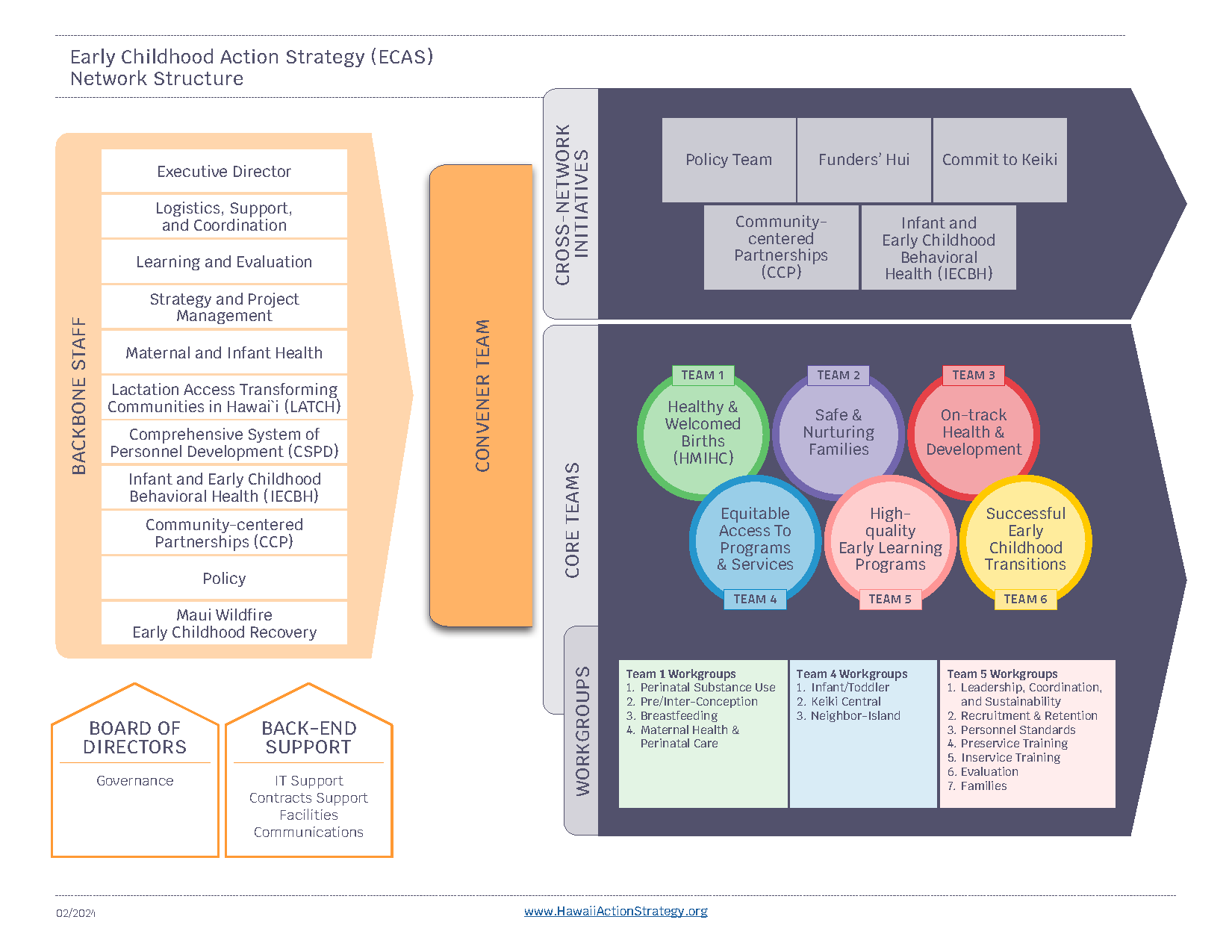
Taking Action for Hawai`i’s Youngest Keiki
The Early Childhood Action Strategy (ECAS) brings together diverse stakeholders, including government and non-government organizations, to improve the system of care for Hawai‘i’s youngest keiki.
Goals
(1) More babies are born healthy,
(2) More children develop on-track,
(3) More children enter kindergarten school-ready,
(4) More children are proficient learners by third grade
The Early Childhood Action Strategy is a statewide government/non-government network designed to improve the system of care for our youngest keiki, their `ohana and the providers that support them. ECAS partners work across sectors to advance four core goals. These include increasing the number of keiki who are:
born healthy
developing on track
ready for kindergarten, and
proficient learners by third grade
ECAS goals are also reflected in the Hawai'i Early Childhood State Plan, which includes data-informed measures of how well our youngest keiki are doing on each of these dimensions.
The ECAS Network of partners aspire to
put children and families first
honor differences in culture and language across communities
address the needs of each island and provide opportunities for all to participate
be evidence-based and data informed
be implemented through the work of many government and non-government partner organizations
Vision
Hawai`i’s youngest keiki are healthy, safe and ready to learn.
Mission
Bring together government and non-government organizations to align priorities for children prenatal to age eight and to strengthen and integrate the early childhood system by streamlining services, maximizing resources and improving programs to support our youngest keiki.
Theory of Change
When babies are born healthy, into safe and nurturing families, and have equitable access to high-quality programs and services, they have a much greater chance of developing on-track, and reaching school ready to thrive.
Six Core Teams work collaboratively to determine and implement systems-level strategies around their focus areas.
Some priorities emerge and grow into Cross-Network Initiatives with cross-team participation.
ECAS also engages in Policy Efforts and Data Efforts to help support and further the goals developed across the network.
ECAS History
-
An early childhood retreat occurred in which State leaders and community partners met with Bill Fulton and Jodi Hardin from the Denver-based Civic Canopy to brainstorm an initial process for designing the Executive Office on Early Learning’s strategic plan, under Governor Neal Abercrombie.
-
Six focus areas were identified. Leaders for each of the six focus areas were recruited and over 80 public and private stakeholders invited to participate in working groups to develop a large context map of Hawaii’s early childhood landscape. R. Scott Spann, MPA, and Founder of Innate Strategies was hired to facilitate the mapping process. See map here.
-
Key strategies and outcomes for each focus area for integrating the early childhood system were developed, based on best practice research and identified “levers of change” from the mapping process. Strategies were endorsed by the Early Learning Advisory Board (ELAB).
-
Hawai`i’s Early Childhood Action Strategy was launched. The plan was finalized and implementation began. Collaborative Leaders Network serves as the backbone organization of the planning and implementation of the Early Action Strategy.
-
U.S. Education Delivery Institute was contracted to assist in developing planning and governance mechanisms.
-
Work plans, metrics, delivery chains and evaluation rubrics for each focus area were created.
-
Implementation continued and Action Strategy leaders were invited to participate in a Systems Design Innovation Lab to receive mentoring from international Systems Design experts.
-
Governor Ige became the new Governor. Action Strategy teams continued to meet and implement through the transition of Administrations. Governor Ige decided to keep Action Strategy work in the Governor’s Office to maintain a neutral location for convening departments and community partners.
-
Executive Office on Early Learning moved to the Department of Education as an attached agency. EOEL and Action Strategy continued to work closely with one another.
-
To enable the Action Strategy network to secure additional private funding, Action Strategy, moved out of State Government and into a local 501c3, but remained focus on supporting government-nongovernment partnerships.
-
Action Strategy backbone grew to 5 full-time staff plus contractors.
-
Early Childhood Action Strategy became its own 501(c)(3) under Collaborative Support Services, Inc.
